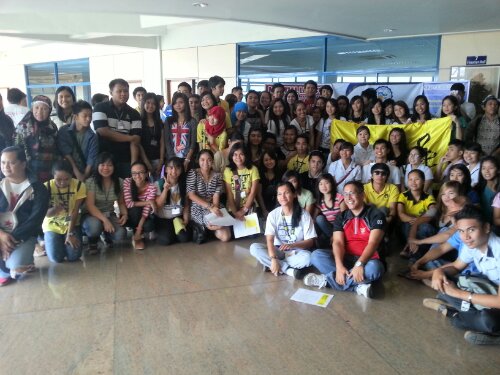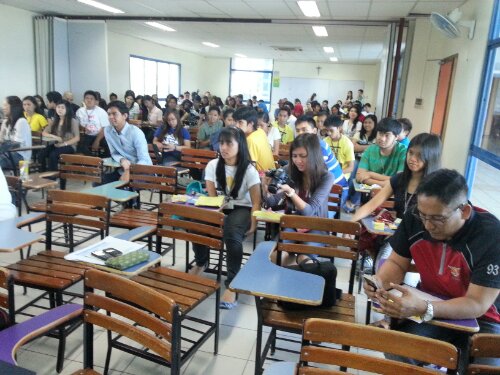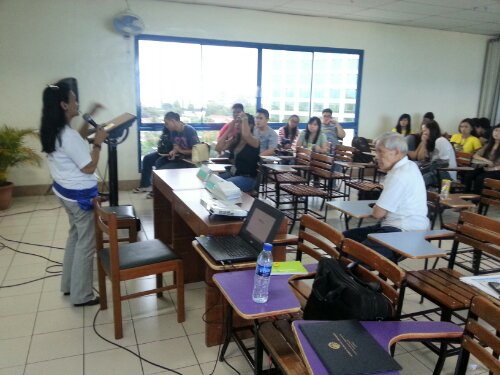Promoting a paper-less Judiciary to protect the environment, the Supreme Court En Banc has recently issued the Efficient Use of Paper Rule, which will maximize the use of every sheet of paper in rulings to be issued by the court and in the pleadings to be filed by parties.
In promulgating the Rule, the Court noted that there is a need to cut the judicial system’s use of excessive quantities of costly paper, save our forests, avoid landslides, and mitigate the worsening effects of climate change that the world is experiencing.
To take effect on January 1 next year after its publication two newspapers of general circulation, the Rule shall apply to all courts and quasi-judicial bodies under the administrative supervision of the Supreme Court,
Under AM No. 11-9-4-SC (the Efficient Use of Paper Rule), the Court, under Chief Justice Maria Lourdes P. A. Sereno, has required that all pleadings, motions, and similar papers intended for the consideration of all courts and quasi-judicial bodies under the supervision of the Supreme Court shall be written in single space with a one-and-a-half space between paragraphs, using an easily readable font style of the party’s choice, of 14-size font, and on a 13-inch by 8.5-inch white bond paper.
All decisions, resolutions, and orders issued by courts and quasi-judicial bodies under the administrative supervision of the High Tribunal, as well as reports submitted to the courts and transcripts of stenographic notes, shall comply with the said requirements.
All court-bound papers to be submitted by every party shall likewise maintain a left hand margin of 1.5 inches from the edge; an upper margin of 1.2 inches from the edge; a right hand margin of one inch from the edge; and a lower margin of one inch from the edge. Every page must be consecutively numbered.
The Rule also specified the number of court-bound papers in a particular court that a party is required or desires to file unless otherwise directed by the court.
In the Supreme Court for instance, parties are required to file one original (properly marked) and four copies, unless the case is referred to the Court En Banc, in which event, the parties shall file 10 additional copies. For the En Banc, the parties need to submit only two sets of annexes, one attached to the original and one extra copy. For the Division, the parties need to submit also two sets of annexes, one attached to the original, as well as an extra copy. All members of the Court shall share the extra copies of annexes in the interest of economy of paper.
In preparation for the eventual establishment of an e-filing paperless system in the Judiciary, the parties to cases before the Supreme Court are further required to submit, simultaneously with their court-bound papers, soft or electronic copies of the same and their annexes (the latter in PDF format) either by email to the Court’s e-mail address or by compact disc. This additional requirement will be on a voluntary basis for the first six months following the effectivity of the said Rule and compulsorily afterwards unless the period is extended.
In the Court of Appeals and the Sandiganbayan, parties are required to submit one original (properly marked) and two copies with their annexes; and in the Court of Tax Appeals, one original (properly marked) and two copies with annexes, and on appeal to the En Banc, one original (properly marked) and eight copies with annexes.
Parties before the trial courts are required to submit one original (properly marked) with the stated annexes attached to it.
Also, a party required by the rules to serve a copy of his or her court-bound paper on the adverse party need not enclose copies of those annexes that, based on the records of the court, show said party already has such. In the event a party requests a set of the annexes actually filed with the court, the party who filed the paper shall comply with the request within five days from receipt of such. (AM No. 11-9-4-SC, Efficient Use of Paper Rule, November 13, 2012, and based on the article written by J.B. Rempillo: http://sc.judiciary.gov.ph/pio/news/2012/11/11291201.php)



You must be logged in to post a comment.